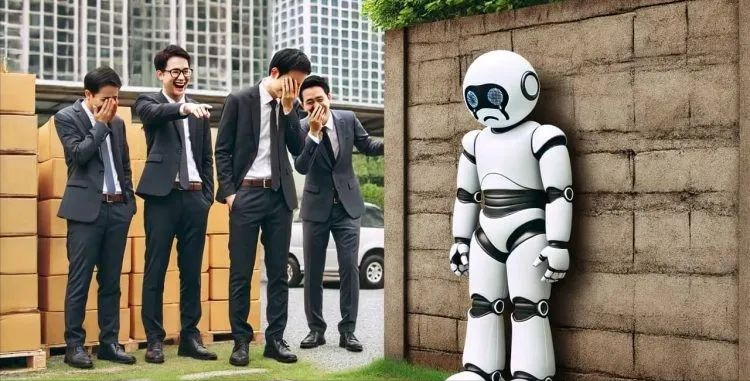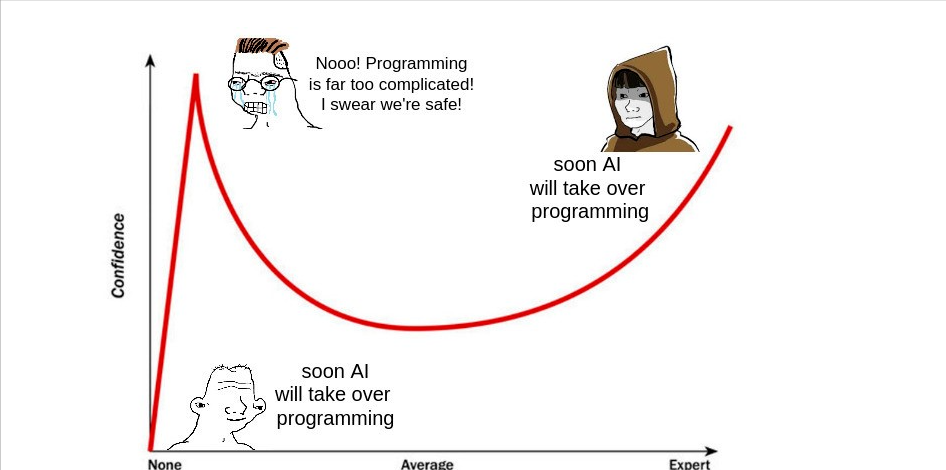since (a time) ChatGPT Since its introduction, we have all been faced with the big question of whether it will replace ourWork. Some people believe that it will create new jobs, just as computers did when they first appeared, but others worry that one day all jobs will be replaced by AI.

Elon Musk has even boldly predicted that artificial intelligence will indeed replace our jobs. In the future we may only continue to work out of interest and motivation.
"It's possible that none of us will have a job, you can have a job if you want to do a job that's kind of like a hobby, but other than that, AI and robots will provide whatever goods and services you want."
--Elon Musk
ChatGPT can write content for us, make reports, generate images and videos, and even do things like programming and data analysis. And realizing these functions still requires technicians, so there will be new job opportunities in the field of artificial intelligence as well.

However, I believe there are some jobs that will not be replaced by AI. These jobs require human abilities such as judgment, creativity, physical dexterity and emotional intelligence. Let's take a look at which high-tech jobs won't be replaced by AI!
1. Counselors
Family or friends can't help you when you have an emotional breakdown or anxiety disorder. What do you do? Would you seek out ChatGPT for a chat? I'm sure not, you would make an appointment with a counselor who would be willing to listen to your problems and offer solutions.
In times of stress, as humans, we need emotional help and support that only another person can give.
While there are now AI chatbots that claim to act as counselors, they are still somewhat emotionally hollow.
A human counselor can build a trusting relationship, tailor the program to each client's needs, and provide individualized guidance.
2. Public services
Artificial intelligence can help public services by streamlining repetitive processes and increasing efficiency, but it can't replace the ethical care, sensitivity, and thoughtful decision-making required for these positions.
Public service work often requires face-to-face interaction with people, and empathy and compassion to recognize and meet each person's needs. Artificial intelligence can't do true emotional understanding and care.
Making moral and ethical decisions is a common need in the public service. Artificial intelligence systems are limited by established algorithms that make it difficult to make decisions involving morality and subjective human values.
Public servants often need to balance the aspirations and interests of members of different communities, which requires a broad understanding of social relations and the ability to resolve disputes. Artificial intelligence cannot handle these people-centered issues well.
3. Leadership roles
Realizing the vision is important for leaders, and that's something AI can't do.
While AI can help us know what's good and what will have consequences, it can never help us build teams, provide motivation, or maintain value systems.
Artificial intelligence can help with some small decisions, but no one expects it to make strategic decisions for the future of the business.
Effective leaders often need to think creatively and develop innovative ideas. Artificial intelligence makes conclusions based more on data and patterns than on nuance or larger context, which often influence leaders' decisions.
We know that AI has no real emotions and cannot understand or react to subtle human emotions.
Overall, AI can assist leaders by providing automation and data-driven insights, but the technology can't replace the human element needed for successful leadership.
4. Surgeons
The positive impact of Artificial Intelligence on the medical field is increasing day by day. However, doctors are still required to make many complex decisions such as diagnosing diseases and understanding the feelings of patients.
Surgical procedures often require immediate decisions based on unexpected circumstances. If complications arise, surgeons rely on their experience and knowledge to make critical decisions quickly.
AI systems that rely on predefined algorithms to operate may not be able to handle these contingencies flexibly and quickly.
In addition, surgeons rely on haptic feedback to determine tissue firmness, detect abnormalities, and perform delicate operations. Artificial intelligence tools and robots cannot currently provide this level of sensory feedback.
Complex surgical procedures require highly refined motor skills and hand-eye coordination that cannot be fully met by AI tools.
Finally, the human anatomy varies greatly from patient to patient, and the condition varies from individual to individual.
During surgery, surgeons may encounter anatomical variations or unexpected diseases that require immediate creative problem solving, which AI systems are not equipped to handle independently.
5. Competitive sports
While AI can help train, analyze and improve performance, it cannot replace competitive sports. Competitive sports encompass the physical, emotional, and cultural dimensions inherent in human beings. Would you want to watch robots play against each other? It could be fun if they were controlled by humans, but not by their intelligence.
Competitive sports require natural human physiological traits such as reaction time, coordination, strength and endurance. Robots and artificial intelligence do not have the biological systems and mechanisms needed to accomplish these tasks.
In addition, athletes are driven by intrinsic factors such as passion, ambition, and the desire to achieve personal and team goals. Artificial intelligence lacks emotion, desire or personal motivation and can only run on programs.
Essentially, the appeal of sports is the thrill of competition, the joy of victory, and the agony of defeat. Sports bring about strong emotional ups and downs, and AI cannot feel or mimic these emotions.
6. Skilled professionals
Trades such as carpentry, plumbing, and electrical require precise manual skills to use equipment, handle materials, and perform complex operations. Skilled tradespeople need to use fine motor skills and tactile feedback to perform delicate and detailed work.
In addition, these trades require the use of a wide range of tools and fine-tuning and adjustments based on real-time feedback. Artificial intelligence systems are limited in their ability to handle a wide range of tools and materials with the same flexibility as a human mechanic.
Most importantly, mechanics interact directly with customers to understand their needs, explain workflow and provide updates. Effective communication includes empathy, negotiation and the ability to manage customer expectations, which cannot be replicated by AI.
at last
Now you know which jobs won't be replaced by AI. While it's not true that all other jobs will be replaced, there may be fewer jobs in other industries because only skilled professionals will be hired.
But there's still a long way to go to get AI tools to think and communicate like humans, so there's still plenty of time!